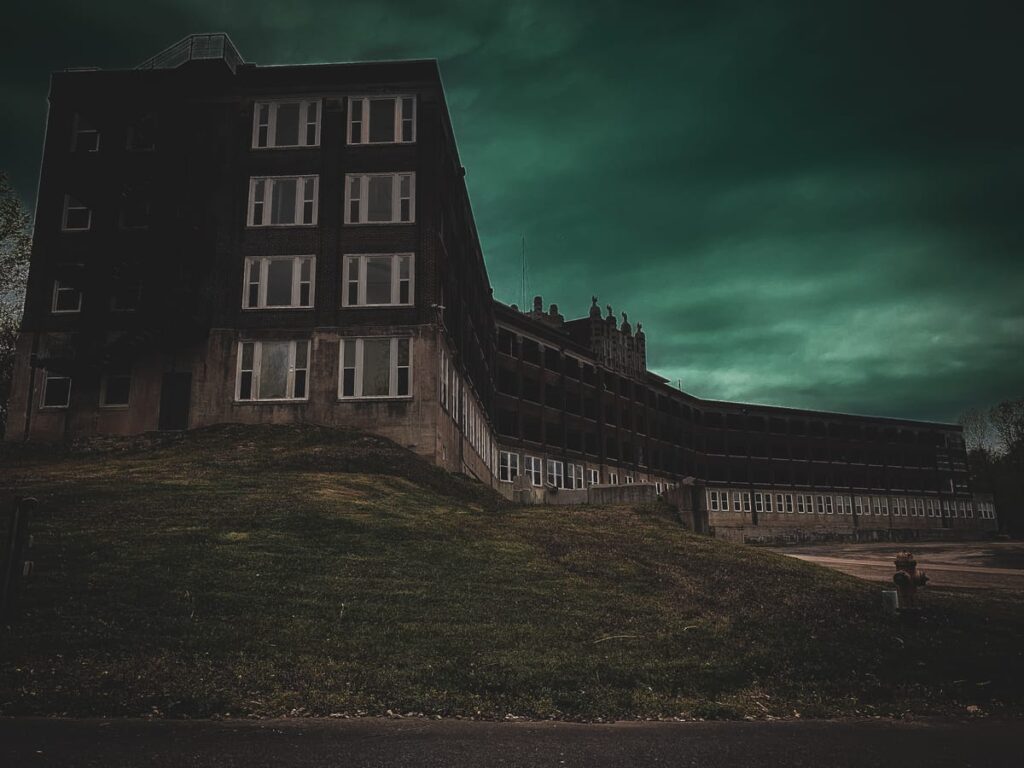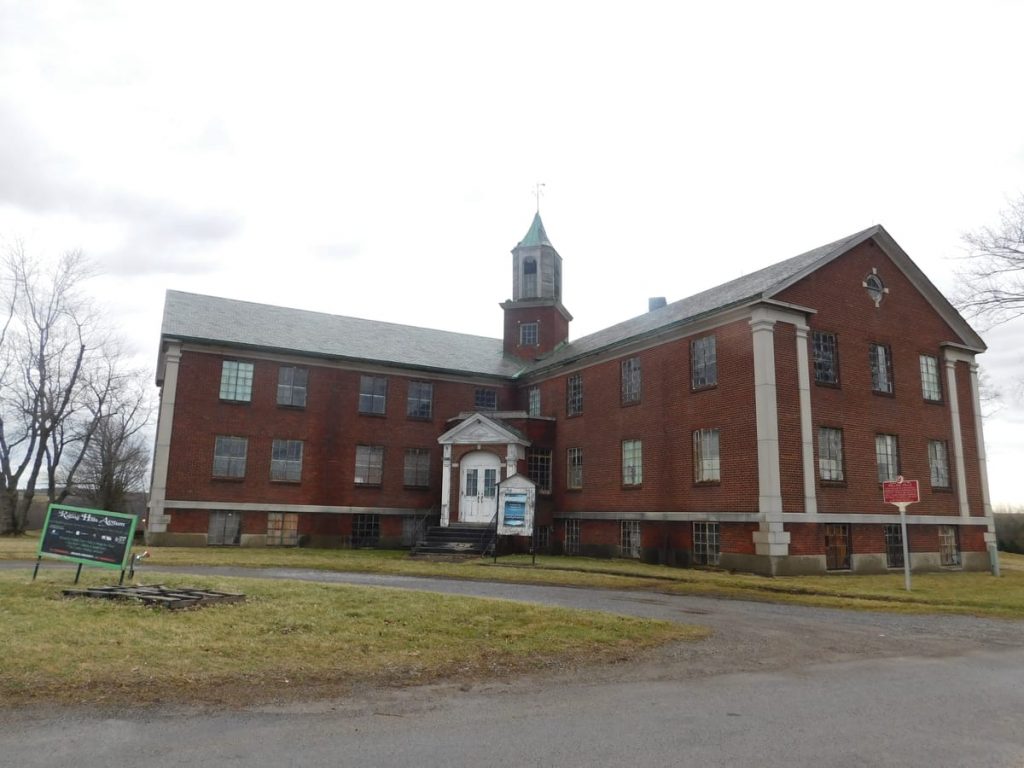
Rolling Hills Asylum
Long after this poor farm closed, some say ghostly paupers are still spending their afterlife here
Reported Hauntings of Rolling Hills Asylum
- Shadow figures are frequently encountered, with one reportedly being over 7 feet tall
- Many disembodied voices are reported throughout the building
- Objects in the morgue are said to move around without explanation
- Large handprints have been found throughout the building with no explanation
- One room is said to house a spirit who will repeatedly call 'hello'
- People have been shoved by unseen forces
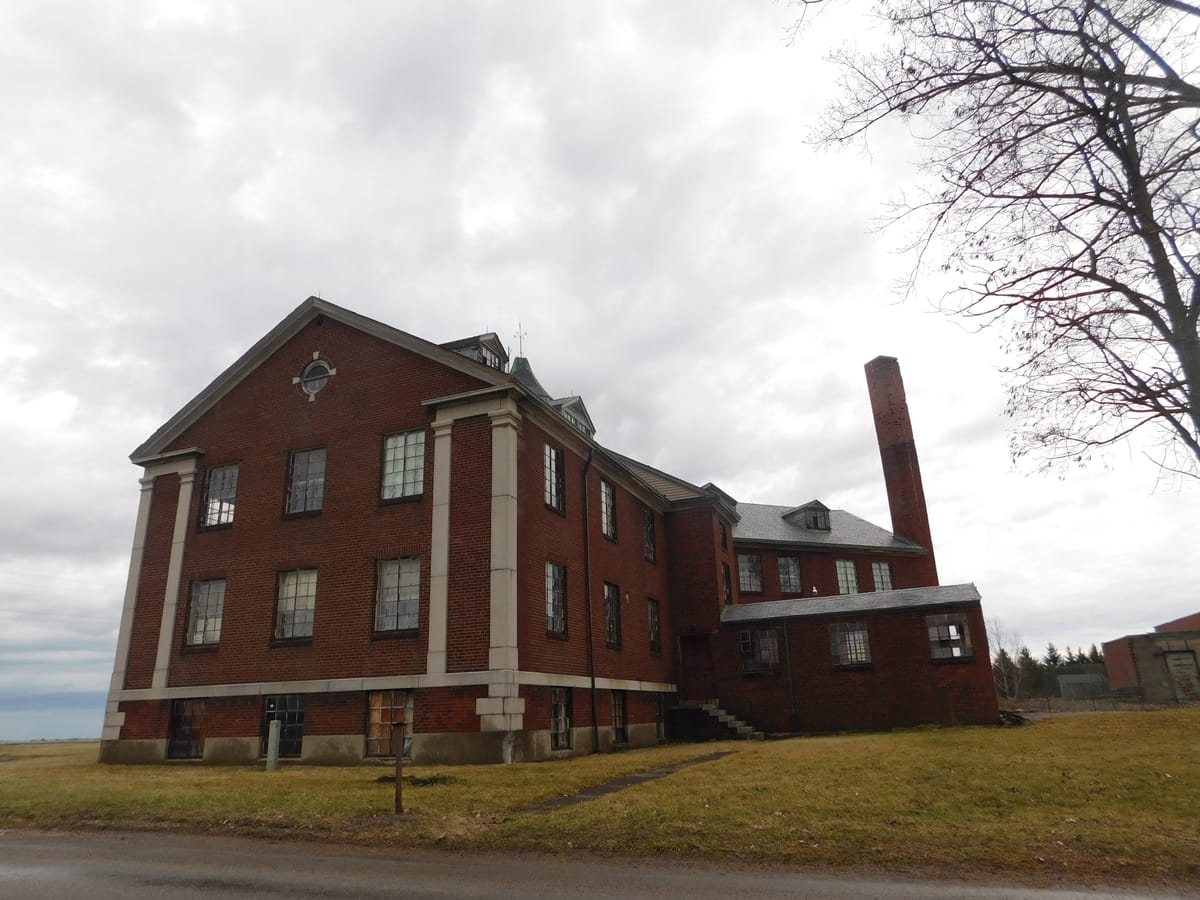
Rolling Hills Asylum:
A History of Poverty
At a desolate, rural crossroad in western New York sits a building that looks as lonesome and forgotten as the farm fields that surround it. With rusted windowpanes, cracked and chipping wood framings, and signage so faded it is nearly unreadable, the Rolling Hills Asylum looks like no soul has stepped foot near it in decades.
But a beaming red placard on the corner of the property tells a much different, and much more eerie tale. What may look like a historical marker at first glance is actually a sign from a New York folklore society, and it tells of great supernatural presences within the brown brick walls of this former almshouse. And though it may look entirely abandoned, Rolling Hills Asylum is often busy with activity, be it from the owners sprucing it up, visitors taking tours, or from the spirits that supposedly haunt the halls.
Timeline of Rolling Hills Asylum's History
Swipe or use timeline points to see Rolling Hills Asylum through the years
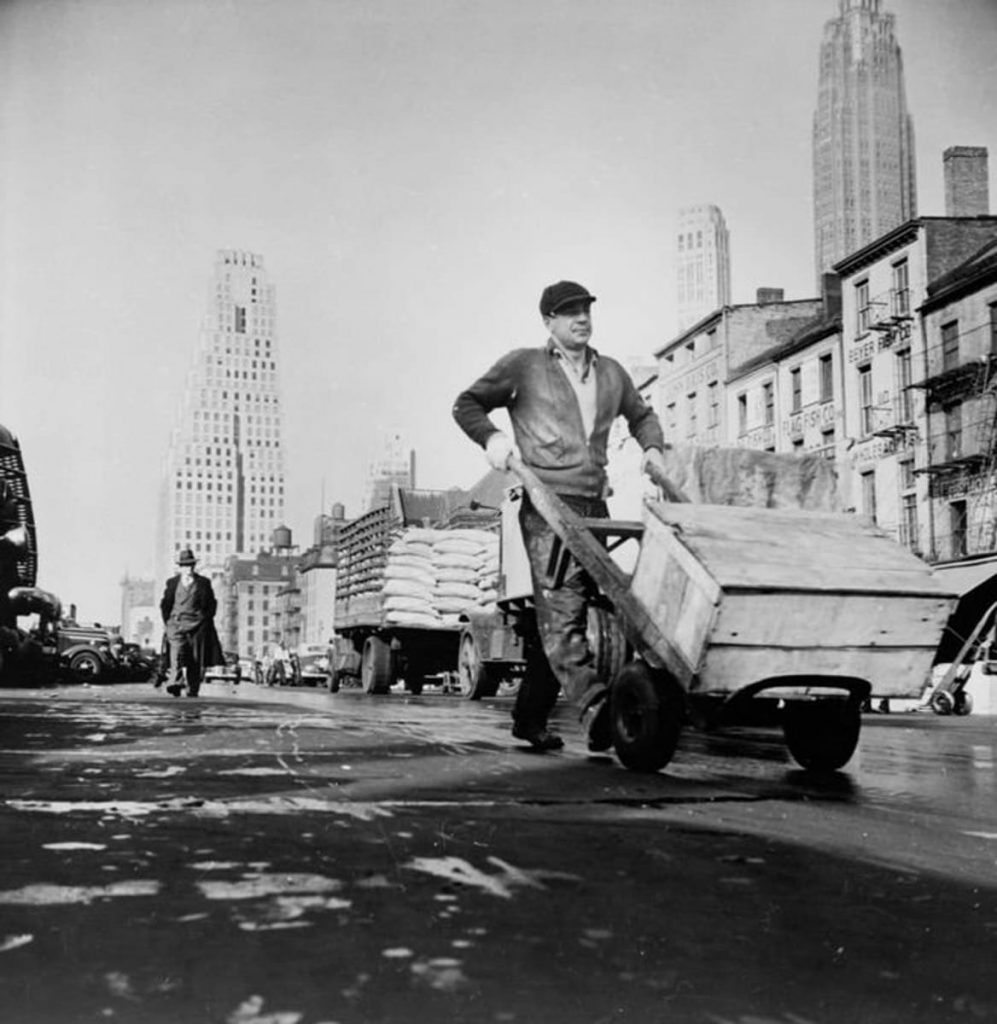
1820
West New York in the 1820s was a far cry from what it is today. Following the War of 1812, the area saw unprecedented growth and land offices were overwhelmed with interested buyers. For the newly formed Genesee County, this meant an over 350% population growth between 1810 and 1820.
While the sale of land and the development of farming communities proved prosperous, the influx of new citizens soon brought a whole host of problems for local leaders to solve, including how to address the homeless, poor, and indigent within the new population.
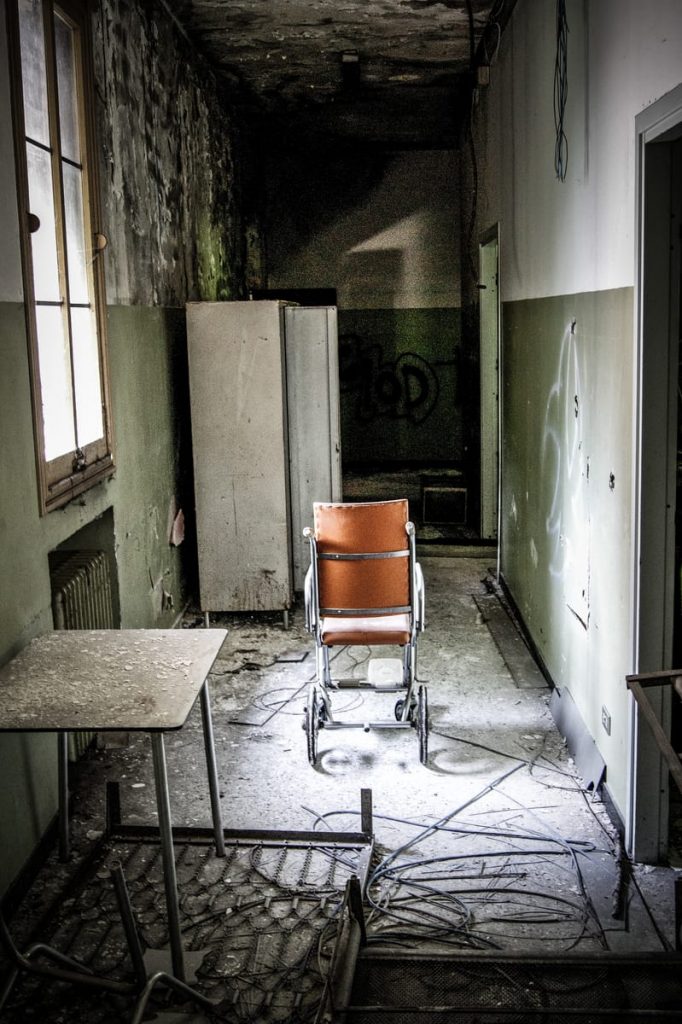
1826
On December 4, 1826, Genesee County developed a plan for a new almshouse. The County Board of Supervisors settled on a plot of land where a stagecoach stop stood that was, at the time, the center of Genesee County. The brick stagecoach tavern was expanded over that winter with the hopes of opening the new almshouse in January of 1827.
At the time of its opening, the new Genesee County Poor Farm housed eligible tenants, including drunkards, vagrants, paupers, state paupers, and lunatics.
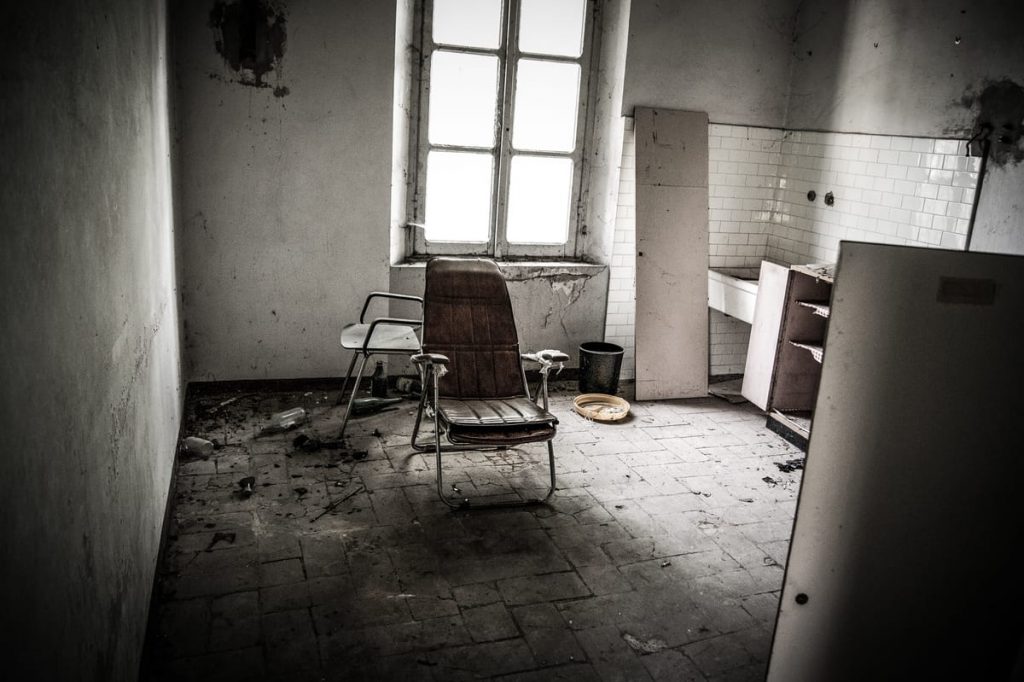
1828
While all tenants, or inmates as they were called, were initially housed together, an expansion was built in 1828 to house the insane inmates at a distance. But while this kept sleeping and living arrangements separate, there was little else separating the criminally insane from destitute families and children staying at the poor farm.
Despite these issues, the poor farm proved to be an imperative resource for the growing county’s ability to manage its populace, only growing as the decades droned on.
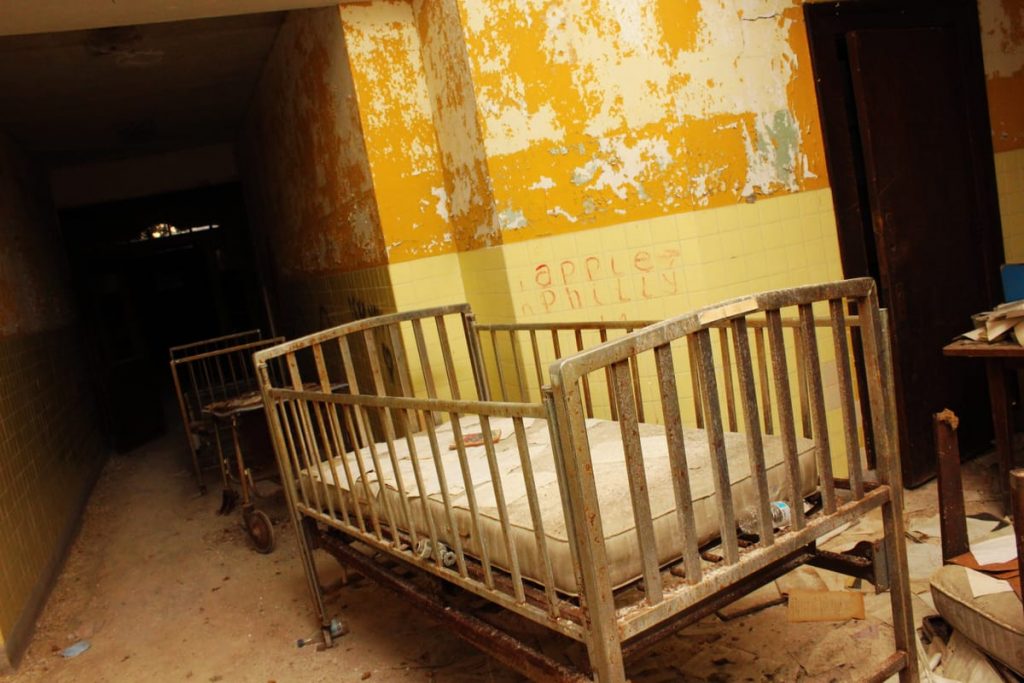
1870
By the 1870s, the poor farm had grown to over 200 acres. While able-bodied inmates worked the land, the fruits of their labor went to providing for the poor farm itself. Along with a farm, the complex had a bakery, a woodshop, and a cannery where inmates could work. An on-site cemetery was added around this time, though its present location is not known.
While it isn’t known how many inmates were buried on-site, records show over 1,700 deaths over the life of the future Rolling Hills Asylum.
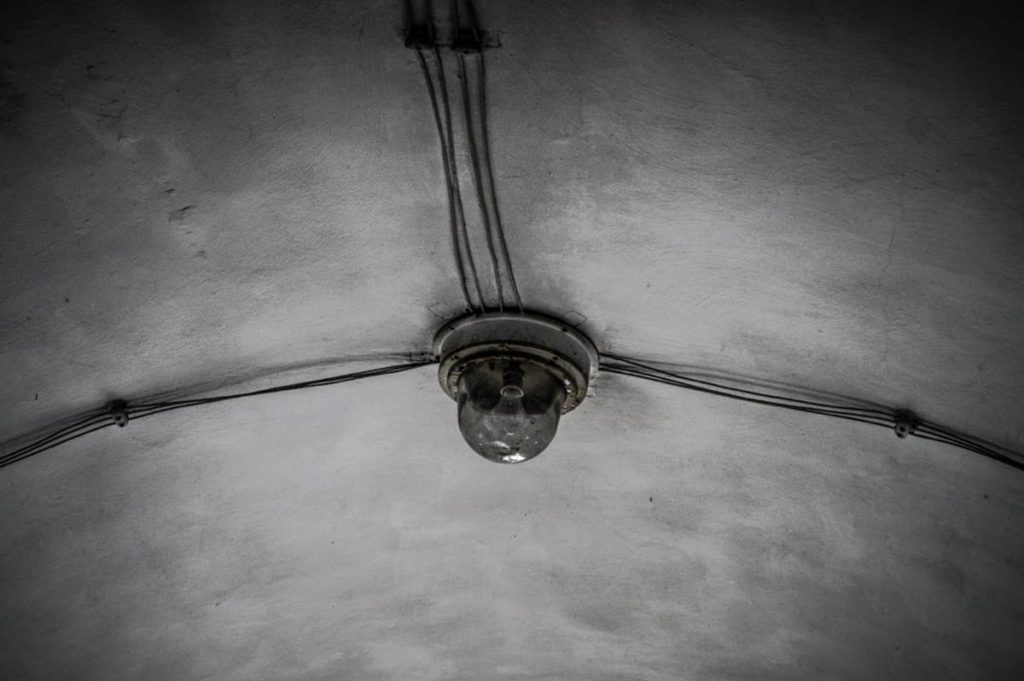
1974
The rise of state asylums and social security put an end to the poor farm in 1974 after almost 150 years of service. The facility sat empty for decades until ghost hunting groups investigated it after hearing of the stories about it over the 1980s and 90s. Inspired by this interest, a new owner took control with a vested interest in revitalization. Given a new name, Rolling Hills Asylum, the building was opened to paranormal enthusiasts and soon took the field by storm.
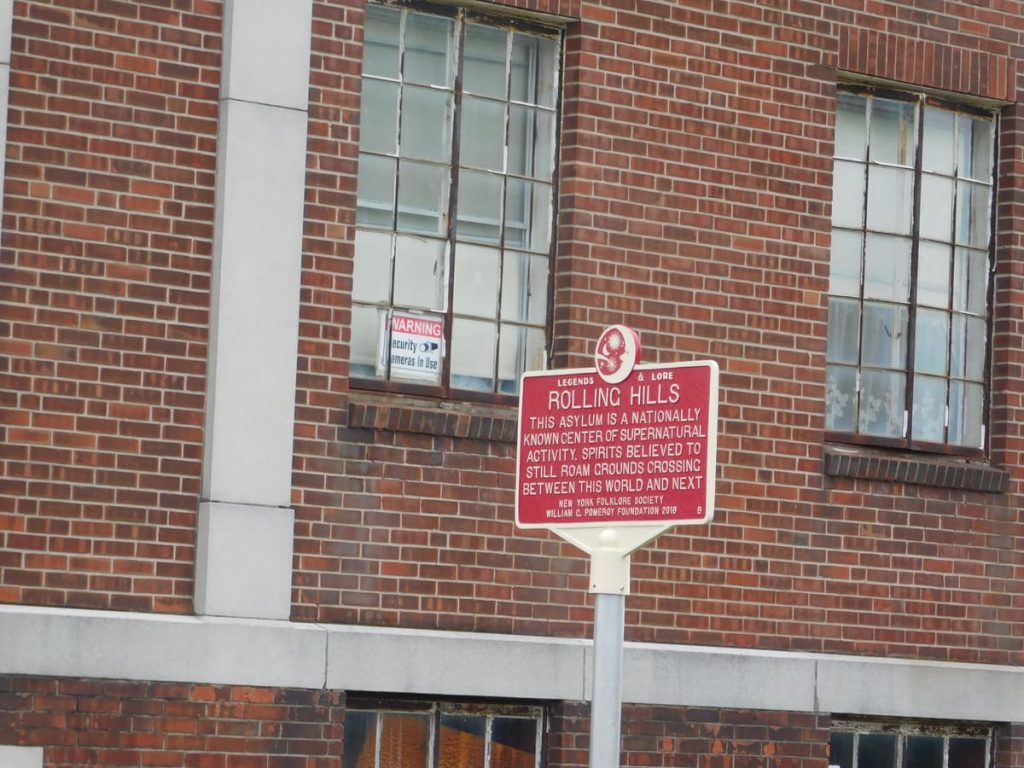
Rolling Hills Asylum’s Many Apparitions
Along with Roy’s tall, thin shadow figure, numerous other moving shadows have been reported at Rolling HillsAsylum. The men’s dormitory area seems to be a hotspot for the apparitions, where they are noted to both appear as human figures and as amorphous, shadowy blobs.
Many of these apparitions are said to move towards those who see them, adding an additional startling layer to one of Rolling Hills’ most frequently reported supernatural occurrences.
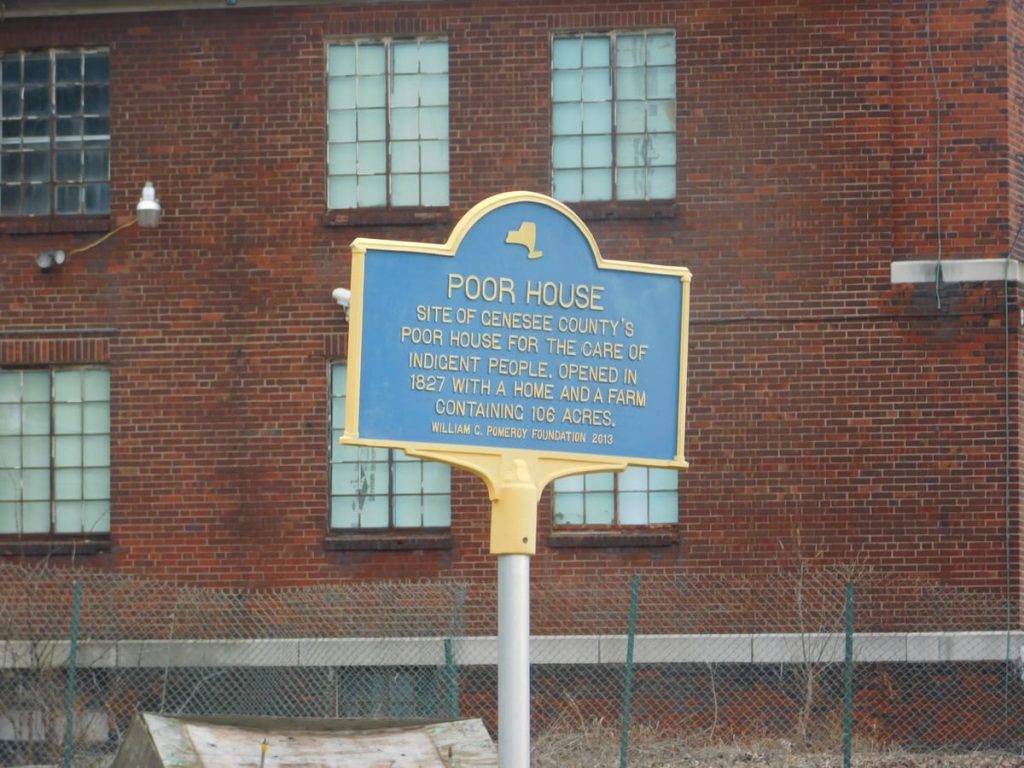
Hauntings of Hattie at Rolling Hills Asylum
Beyond just shadows and apparitions, disembodied voices have become a fixture of the Rolling Hills Asylum experience. One of these voices is said to be heard so often that it’s been connected to a past inmate named Hattie. Hattie was once an elderly and blind woman housed at the almshouse when she could no longer care for herself, and took to calling ‘hello’ whenever she needed anything from staff members.
Now, visitors on tours and ghost hunters performing investigations often report hearing Hattie’s weary voice calling out ‘hello’ from her room on the East Wing’s first floor.
Does Rolling Hills Asylum harbor Angry Spirits?
Despite many of the spirits at Rolling Hills Asylum seeming benevolent, not every entity is known to be calm and level-headed. Down in the basement particularly, it is said some angry or vengeful spirits linger.
While there is no confirmation that basement rooms were used for solitary confinement, the old building’s infrastructure seems to point that way, with several small basement rooms sporting heavy metal chain loops built directly into the wall masonry.
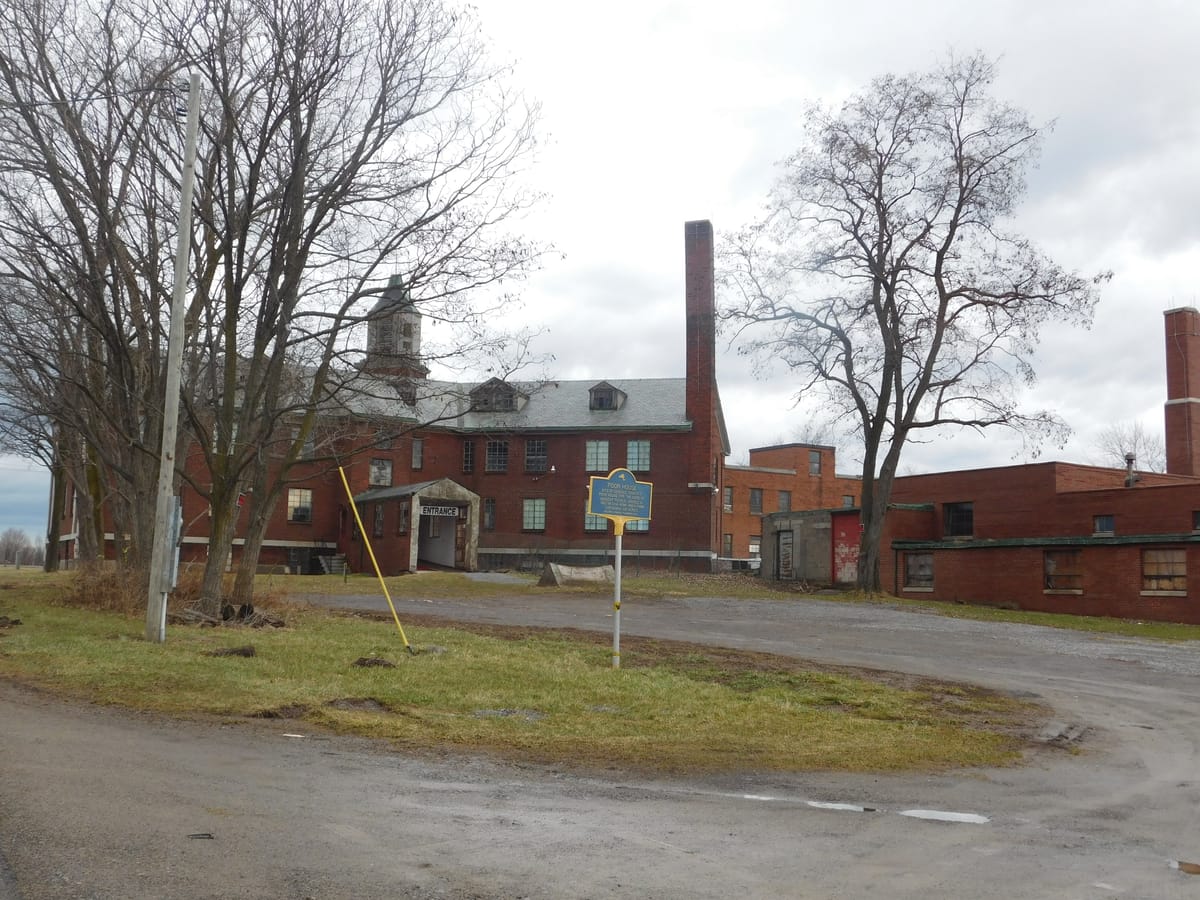
It is around these spaces, and the nearby morgue, where visitors have reported being shoved by unseen forces. Some have even reported being knocked off their feet completely by these invisible entities.
The presence of these negative entities is sometimes said to be accompanied by an uneasy or unwelcomed feeling in people exploring down there.




